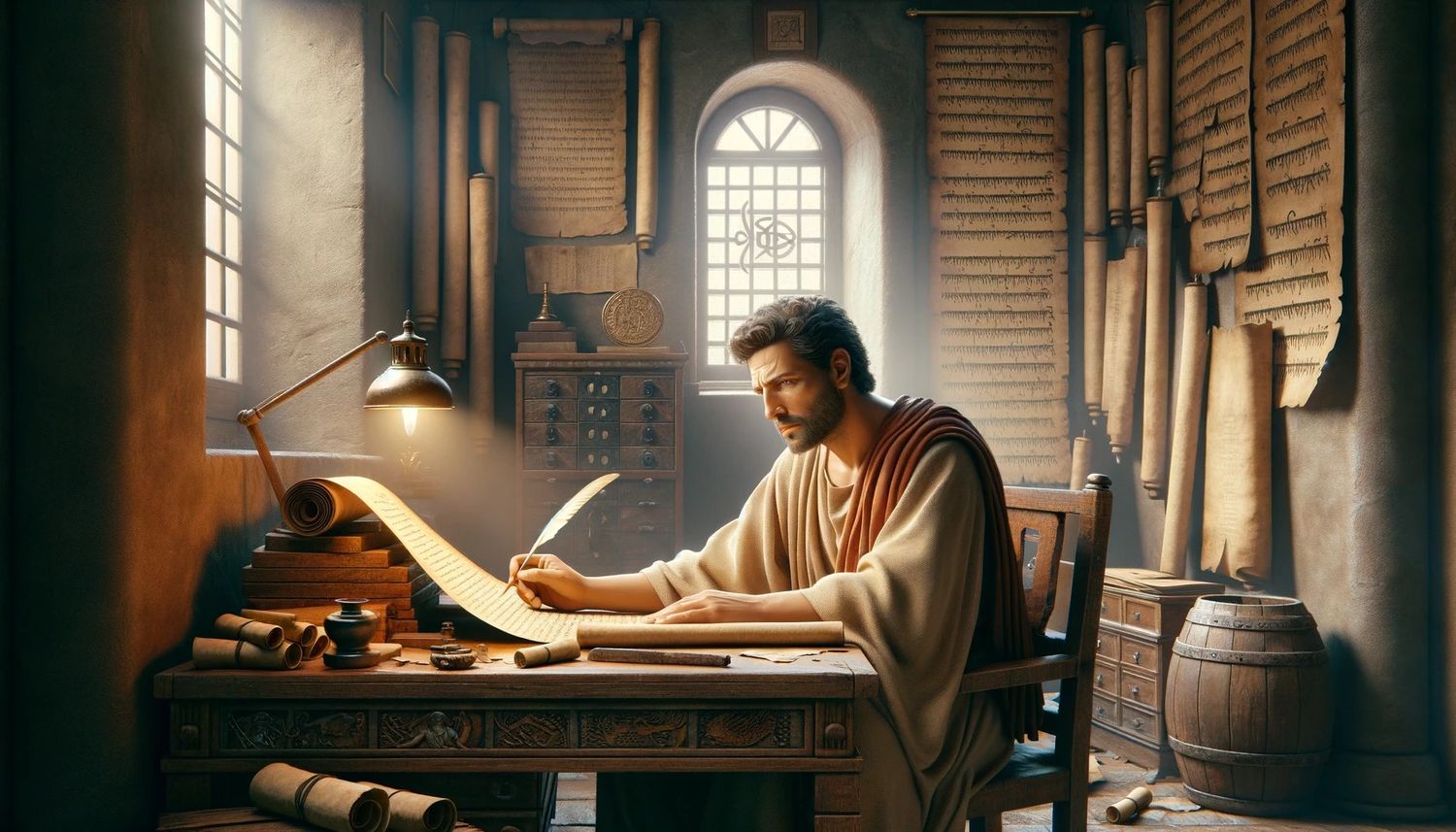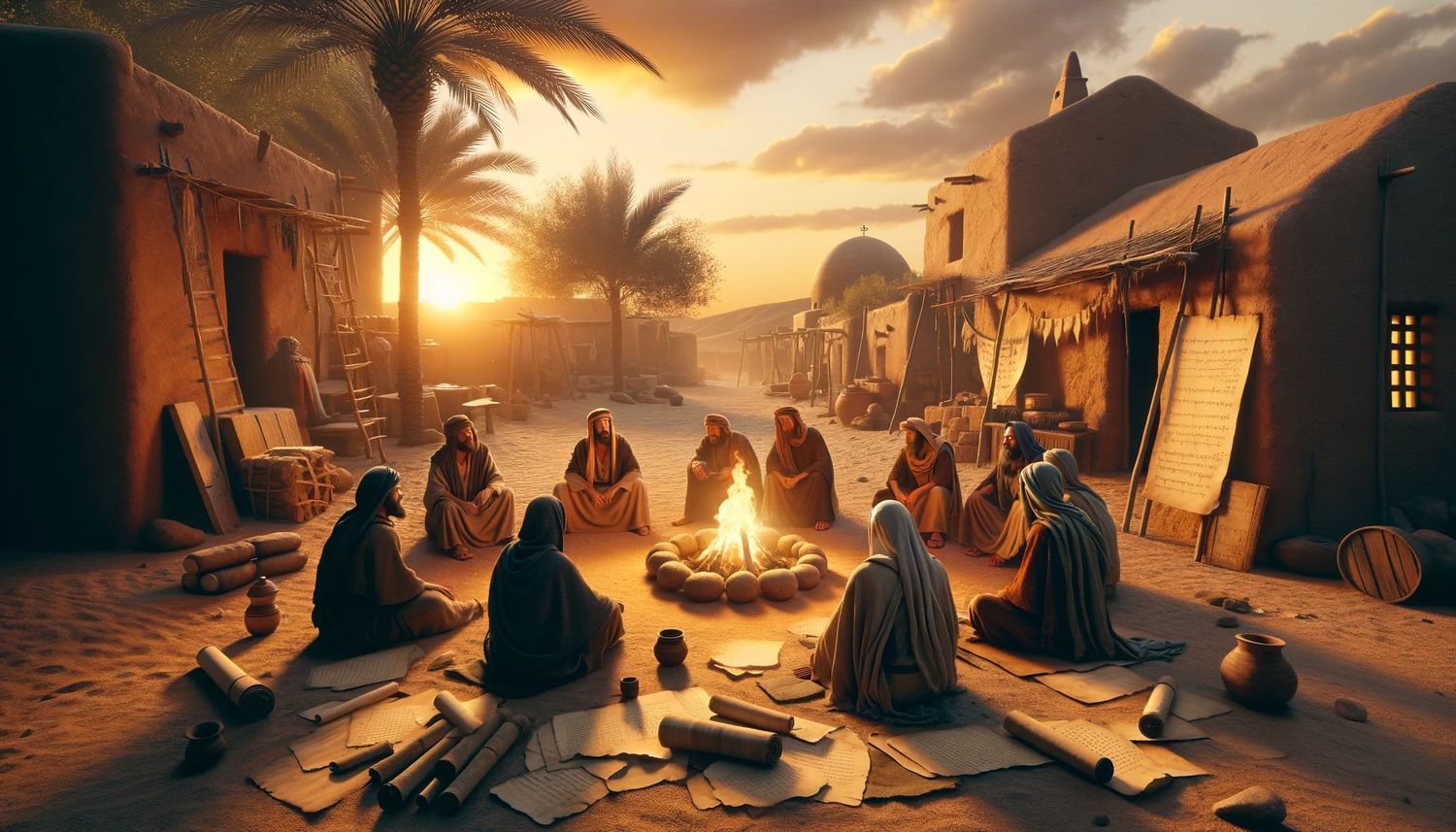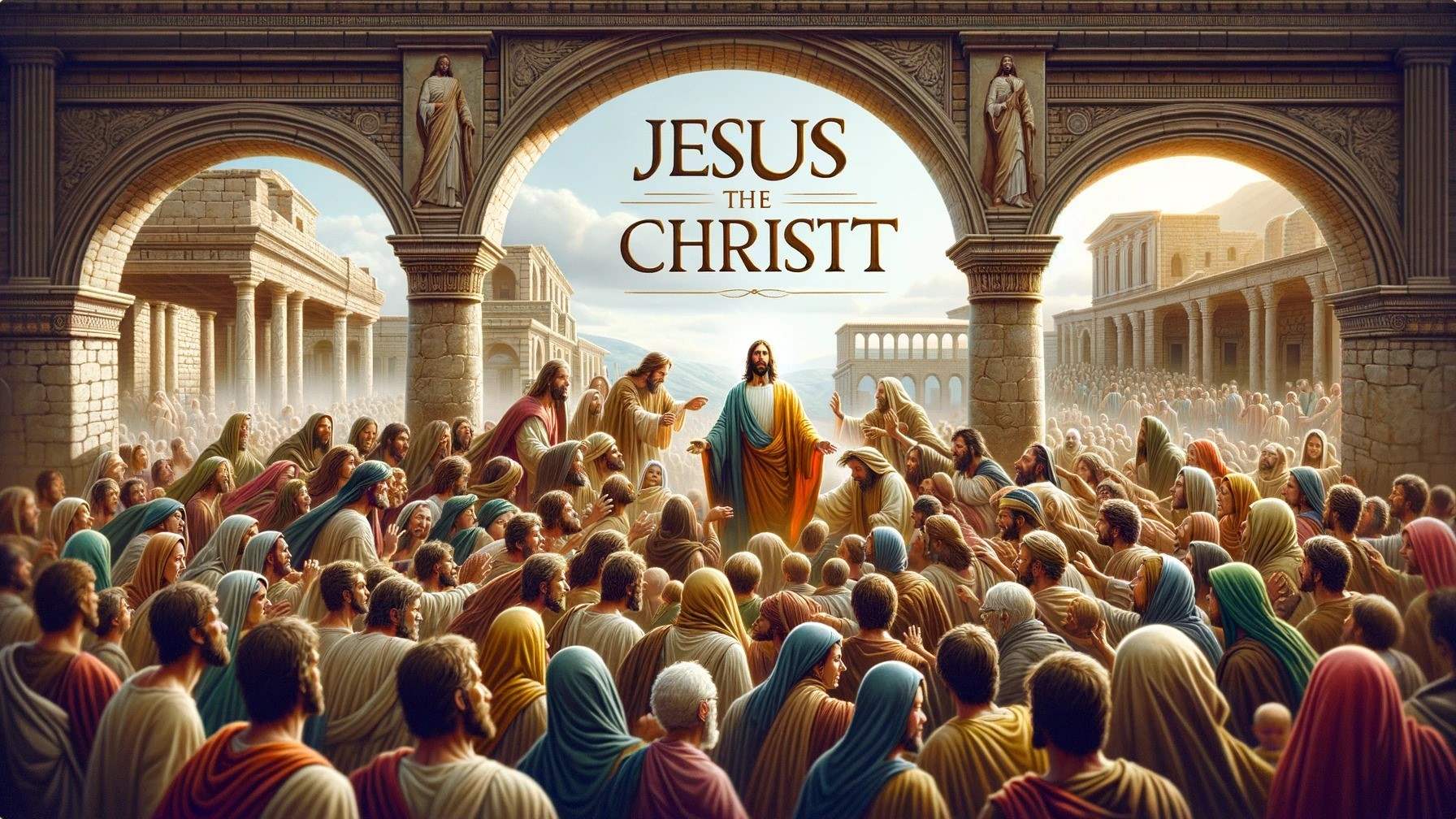Home>Christian Videos>Bible Stories>How Was It Determined That Mark, Matthew, Luke, And John Wrote The Gospels?


Bible Stories
How Was It Determined That Mark, Matthew, Luke, And John Wrote The Gospels?
Published: March 7, 2024
Jason DeRose, Managing Editor at Christian.net, uses his expertise in religion and journalism to deepen understanding of faith's societal impacts. His editorial leadership, coupled with a strong academic background, enriches the platform’s diverse content, earning him recognition in both journalism and religious circles.
Discover how the authorship of the Gospels was determined and the significance of Mark, Matthew, Luke, and John in the Bible stories. Explore the evidence and insights.
(Many of the links in this article redirect to a specific reviewed product. Your purchase of these products through affiliate links helps to generate commission for Christian.net, at no extra cost. Learn more)
Table of Contents
The Historical Attribution of the Gospels
The historical attribution of the Gospels refers to the traditional ascriptions of authorship to the four canonical Gospels of the New Testament: Mark, Matthew, Luke, and John. These attributions are crucial to the Christian faith as they provide the foundation for the belief in the divine inspiration and authority of these texts. The determination of the authors of the Gospels has been a subject of scholarly inquiry and debate for centuries, with various historical, textual, and theological factors contributing to the understanding of their authorship. Understanding the historical attribution of the Gospels involves examining the early Christian traditions, the testimonies of the church fathers, and the internal evidence within the texts themselves.
The Authorship Traditions of Mark, Matthew, Luke, and John
The authorship traditions of the Gospels have been deeply ingrained in Christian history and theology. According to these traditions:
-
Mark: The Gospel of Mark is traditionally attributed to John Mark, a companion of the apostle Peter. It is believed that Mark transcribed Peter's teachings and experiences to create the Gospel.
-
Matthew: The Gospel of Matthew is traditionally ascribed to the apostle Matthew, also known as Levi, a tax collector who became one of Jesus' twelve disciples.
-
Luke: The Gospel of Luke is traditionally attributed to Luke, a companion of the apostle Paul. Luke is also believed to be the author of the Acts of the Apostles.
-
John: The Gospel of John is traditionally attributed to the apostle John, the son of Zebedee, who was one of the inner circle of disciples along with Peter and James.
These authorship traditions have been passed down through the centuries within the Christian community and have played a significant role in shaping the understanding and interpretation of the Gospels.
The Early Church Fathers' Testimonies on Gospel Authorship
The early church fathers, influential Christian theologians and writers from the first few centuries of the Common Era, played a pivotal role in shaping the understanding of Gospel authorship. Their testimonies provide valuable insights into the traditional ascriptions of the Gospels to Mark, Matthew, Luke, and John.
-
Papias: Papias, a second-century bishop and early Christian writer, is known for his work "Exposition of the Sayings of the Lord." In this writing, Papias attributes the Gospel of Mark to John Mark, who is described as the interpreter of Peter. This testimony is significant as it represents an early link between the Gospel of Mark and the teachings of the apostle Peter.
-
Irenaeus: Irenaeus, an influential Christian theologian of the late second century, provided important testimony regarding the authorship of the Gospels. In his work "Against Heresies," Irenaeus explicitly ascribes the Gospel of Matthew to the apostle Matthew, emphasizing the authoritative nature of this Gospel due to its apostolic origin.
-
Tertullian: Tertullian, a prolific Christian author from the early third century, also affirmed the traditional authorship of the Gospels. In his writings, Tertullian attributes the Gospel of Luke to Luke the physician, a companion of the apostle Paul. This testimony reinforces the early attribution of the Gospel to its purported author.
-
Clement of Alexandria: Clement of Alexandria, a prominent Christian scholar from the late second century, provided additional insights into Gospel authorship. In his works, Clement attributes the Gospel of John to the apostle John, affirming the traditional authorship of this Gospel within the early Christian community.
The testimonies of these early church fathers serve as important historical evidence for the traditional ascriptions of the Gospels to their respective authors. Their writings demonstrate the early acceptance and recognition of Mark, Matthew, Luke, and John as the authors of the canonical Gospels, contributing to the development of the authorship traditions within early Christianity.
The Internal Evidence Supporting the Traditional Authorship
The internal evidence within the Gospels themselves provides valuable insights into the traditional authorship attributed to Mark, Matthew, Luke, and John. While the Gospels do not contain explicit statements of authorship within the texts, scholars have identified internal indicators that support the traditional ascriptions.
-
Mark's Gospel: The Gospel of Mark exhibits characteristics that align with the traditional association with John Mark and his connection to the apostle Peter. Mark's Gospel contains vivid and detailed accounts of Peter's experiences and teachings, suggesting a close relationship between the author and Peter. Additionally, Mark's Gospel reflects an emphasis on Peter's role and perspective, further reinforcing the traditional attribution to Mark as Peter's interpreter.
-
Matthew's Gospel: The Gospel of Matthew displays a strong Jewish perspective and familiarity with the customs, traditions, and Old Testament scriptures of the Jewish people. This aligns with the traditional understanding of Matthew as a former tax collector and a Jewish disciple of Jesus. The Gospel's emphasis on the fulfillment of Old Testament prophecies and the teachings of Jesus to the Jewish audience supports the traditional attribution to Matthew.
-
Luke's Gospel: The Gospel of Luke, along with the Acts of the Apostles, exhibits a high level of literary skill and attention to detail. The author demonstrates a deep understanding of the historical and cultural context of the events described in the Gospel, as well as a focus on the Gentile mission and the ministry of the apostle Paul. These characteristics align with the traditional attribution to Luke, a companion of Paul known for his meticulous research and writing.
-
John's Gospel: The Gospel of John presents a unique theological perspective and a profound emphasis on the divinity of Jesus Christ. The author demonstrates a deep understanding of Jewish traditions and theology, while also conveying a distinct theological message regarding the identity of Jesus as the Son of God. These internal characteristics align with the traditional attribution to the apostle John, known for his close relationship with Jesus and his profound theological insights.
The internal evidence within the Gospels provides compelling support for the traditional authorship ascribed to Mark, Matthew, Luke, and John. While the Gospels do not contain explicit statements of authorship, the internal characteristics and thematic elements within each Gospel align with the traditional attributions, contributing to the historical understanding of Gospel authorship within the Christian tradition.
The Modern Scholarly Debate on Gospel Authorship
The modern scholarly debate on Gospel authorship encompasses a wide range of perspectives and approaches that challenge and reevaluate the traditional attributions of Mark, Matthew, Luke, and John as the authors of the canonical Gospels. This debate is characterized by a diversity of scholarly opinions, critical analyses of historical evidence, and the application of literary, textual, and theological methodologies to the study of the Gospels.
-
Authorship Attribution: One aspect of the modern scholarly debate revolves around the attribution of authorship to the Gospels. Scholars critically examine the internal and external evidence related to the Gospels, questioning the traditional ascriptions and exploring alternative authorship theories. This includes considerations of literary style, theological themes, and historical context that may suggest a different authorial origin for the Gospels.
-
Redaction and Sources: Another key element of the modern debate focuses on the redactional and source-critical aspects of the Gospels. Scholars analyze the literary composition of the Gospels, seeking to identify and differentiate the contributions of the purported authors from potential sources or editorial layers. This involves the study of textual variations, narrative parallels, and the potential use of oral or written traditions in the formation of the Gospels.
-
Historical Context and Community Traditions: The modern scholarly debate also delves into the historical context and community traditions that may have influenced the authorship and transmission of the Gospels. Scholars examine the social, cultural, and theological milieu of early Christianity, considering how these factors may have shaped the attributions and perceptions of Gospel authorship within the early Christian communities.
-
Theological and Ideological Perspectives: Additionally, the modern debate encompasses theological and ideological perspectives that impact the understanding of Gospel authorship. Scholars from diverse theological backgrounds engage in critical inquiry, seeking to reconcile the traditional attributions with contemporary theological frameworks or to challenge long-held assumptions about authorship based on theological or ideological considerations.
-
Interdisciplinary Approaches: The modern scholarly debate on Gospel authorship benefits from interdisciplinary approaches that integrate insights from fields such as textual criticism, archaeology, linguistics, and comparative religious studies. This interdisciplinary engagement enriches the debate by providing diverse methodological tools and perspectives for evaluating the authorship of the Gospels.
The modern scholarly debate on Gospel authorship reflects the ongoing pursuit of knowledge and understanding within the academic study of the New Testament. It encompasses a dynamic and multifaceted discourse that continues to shape and challenge the traditional attributions of Mark, Matthew, Luke, and John as the authors of the Gospels, contributing to the ongoing evolution of Gospel scholarship.















